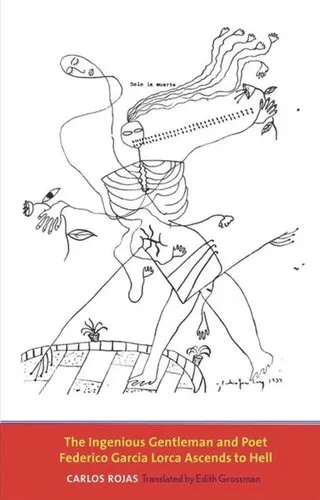Don Quixote
3.9
Reviews from our users

You Can Ask your questions from this book's AI after Login
Each download or ask from book AI costs 2 points. To earn more free points, please visit the Points Guide Page and complete some valuable actions.Related Refrences:
Introduction to 'Don Quixote'
Written by Miguel de Cervantes, 'Don Quixote' is a landmark in Western literature, a timeless saga that delves into the grandeur of dreams and the harshness of reality. Initially published in two volumes, in 1605 and 1615, 'Don Quixote de la Mancha' has captivated readers with its captivating narrative and profound insight into the human condition.
Detailed Summary
The story begins in a small village in La Mancha, Spain, where an aging nobleman named Alonso Quixano becomes so enthralled by the chivalric romances that he read he impulsively decides to become a knight-errant. Donning a suit of armor and assuming the romanticized name Don Quixote, he embarks on a quest for adventure alongside his loyal squire, Sancho Panza.
The first part of the novel follows Don Quixote's misguided and often comic adventures. Mistaking inns for castles and windmills for giants, he creates a world fueled by imagination, far removed from reality. His exploits serve as both a parody of and homage to the chivalric traditions and medieval literature that influenced him.
In the second volume, published a decade later, Cervantes provides deeper introspection into the characters. Don Quixote faces challenges not only from the physical world but also from the very readers his tales entertain. The meta-literary approach used in this volume highlights the blurred lines between reality and fiction.
The narrative invigorates a myriad of themes, from the nature of sanity and madness to the social hierarchy and the power of literature.
Key Takeaways
- The Power of Imagination: Don Quixote's adventures underscore the boundless power of imagination and its impact on one's perception of reality.
- Reality vs. Perception: The novel provides a dual perspective on adventure and heroism, blurring the lines between reality and fantasy.
- Satire and Irony: Cervantes masterfully uses satire to critique the romantic ideals of his time, shedding light on societal norms and human nature.
- The Complexity of Character: Through the juxtaposition of Don Quixote and Sancho Panza, readers explore themes of loyalty, friendship, and the contrast of idealism and pragmatism.
Famous Quotes from the Book
"The truth may be stretched thin, but it never breaks, and it always surfaces above lies, as oil floats on water."
"When life itself seems lunatic, who knows where madness lies?"
"There is no book so bad... that it does not have something good in it."
Why This Book Matters
'Don Quixote' stands as a monumental piece of literature because it transcends its own time, offering insights that remain relevant today. It is not only a critique of the literary and social traditions of the 17th century but also a profound exploration of the human spirit's resilience in the face of reality.
At its core, the story of Don Quixote teaches us about the beauty of pursuing dreams, the value of friendship, and the inevitable confrontation with reality. Cervantes created not just a character but a symbol of timeless human folly and greatness. His work laid the foundation for modern novelistic narratives and continues to influence writers and thinkers across cultures.
Ultimately, 'Don Quixote' remains a testament to the enduring nature of literature and the complexities of human nature, bridging the gap between comedy and tragedy with unparalleled depth.
Free Direct Download
You Can Download this book after Login
Accessing books through legal platforms and public libraries not only supports the rights of authors and publishers but also contributes to the sustainability of reading culture. Before downloading, please take a moment to consider these options.
Find this book on other platforms:
WorldCat helps you find books in libraries worldwide.
See ratings, reviews, and discussions on Goodreads.
Find and buy rare or used books on AbeBooks.
1366
بازدید3.9
امتیاز50
نظر98%
رضایتReviews:
3.9
Based on 0 users review
"کیفیت چاپ عالی بود، خیلی راضیام"
Questions & Answers
Ask questions about this book or help others by answering
No questions yet. Be the first to ask!



